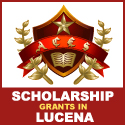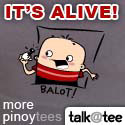Senior High School in the Philippines: Curriculum Breakdown
A question that many incoming senior high school students and their parents frequently ask is how different the senior high school curriculum to the old high school curriculum is, so to give you an idea of what SHS students will study once they begin senior high school, provided below is a curriculum breakdown that you can use for reference.
Core Subjects
Core subjects are subjects that all SHS students will study regardless of their chosen career track or learning strand. You can think of this as similar to the general education (GE) subjects that college students usually take on their first or second year of college.
Subjects that form the core of the SHS curriculum include:
- Oral Communication
- Reading and Writing
- Komunikasyon at Pananaliksik sa Wika at Kulturang Pilipino (Communication and Research on Filipino Language and Culture)
- Pagbasa at Pagsuri ng Iba’t Ibang Teksto Tungo sa Pananaliksik (Reading and Critique of Different Research Texts)
- 21st Century Literature from the Philippines and the World
- Contemporary Philippine Arts from the Regions
- Media and Information Literacy
- General Mathematics
- Statistics and Probability
- Earth and Life Science
- Physical Science
- Pansariling Kaunlaran (Personal Development)
- Understanding Culture, Society, and Politics
- Pambungad sa Pilosopiya ng Tao (Introduction to the Philosophy of the Human Person)
- Physical Education and Health
- Earth Science (taken instead of Earth and Life Science for those in the STEM Strand)
- Disaster Readiness and Risk Reduction (taken instead of Physical Science for those in the STEM Strand)
Applied Subjects
Applied / contextualized subjects are subjects that all SHS students will take; however, contrary to core subjects which are only meant to cover the most basic of topics, applied subjects are designed to focus on the specific applications of certain subjects on the student’s chosen career track or learning strand.
For example, while all career tracks include a Filipino subject, Filipino as used in the field of arts and design and Filipino as used in the field of sports can have slight differences just like how research in the fields of humanities and social sciences is sometimes conducted differently in the fields of science and technology.
Applied subjects that you are going to study as part of the SHS curriculum include:
- English for Academic and Professional Purposes
- Practical Research 1
- Practical Research 2
- Filipino sa Piling Larangan
- Empowerment Technologies (for the Strand)
- Entrepreneurship
- Inquiries, Investigations, and Immersion
Specialized Subjects
Specialized subjects are subjects that are unique to the career track or learning strand that the student chose. These are similar to the major subjects that college students take, although they’re designed to be less complex than their college counterparts.
Specialized subjects that belong to each career track and learning strand are listed below.
ACADEMIC TRACK
Accountancy, Business, and Management (ABM) Strand
- Applied Economics
- Business Ethics and Social Responsibility
- Fundamentals of Accountancy, Business and Management 1
- Fundamentals of Accountancy, Business and Management 2
- Business Math
- Business Finance
- Organization and Management
- Principles of Marketing
- Work Immersion/Research/Career Advocacy/Culminating Activity i.e. Business Enterprise Simulation
Humanities and Social Sciences Strand (HUMSS)
- Creative Writing/ Malikhaing Pagsulat
- Introduction to World Religions and Belief Systems
- Creative Nonfiction
- Trends, Networks, and Critical Thinking in the 21st Century Culture
- Philippine Politics and Governance
- Community Engagement, Solidarity, and Citizenship
- Disciplines and Ideas in the Social Sciences
- Disciplines and Ideas in the Applied Social Sciences
- Work Immersion/ Research/ Career Advocacy/ Culminating Activity
Science, Technology, Engineering and Mathematics (STEM) Strand
- Pre-Calculus
- Basic Calculus
- General Biology 1
- General Biology 2
- General Physics 1
- General Physics 2
- General Chemistry 1 and 2
- Work Immersion/Research/Career Advocacy/Culminating Activity
General Academic Strand
- Humanities 1*
- Humanities 2*
- Social Science 1**
- Applied Economics
- Organization and Management
- Disaster Readiness and Risk Reduction
- Elective 1 (from any Track/Strand)***
- Elective 2 (from any Track/Strand)***
- Work Immersion/Research/Career Advocacy/Culminating Activity
*Select from HUMSS Strand Subjects 1 to 4
**Select from HUMSS Strand Subjects 5 to 8
***Schools must present/offer a range of subjects from which students can choose.
SPORTS TRACK
- Safety and First Aid
- Human Movement
- Fundamentals of Coaching
- Sports Officiating and Activity Management
- Fitness, Sports and Recreation Leadership
- Psychosocial Aspects of Sports and Exercise
- Fitness Testing and Basic Exercise Programming
- Practicum (in-campus)
- Work Immersion/Research/Career Advocacy/Culminating Activity i.e. Apprenticeship (off-campus)
ARTS AND DESIGN TRACK
- Creative Industries I: Arts and Design Appreciation and Production
- Creative Industries II: Performing Arts
- Physical and Personal Development in the Arts
- Developing Filipino Identity in the Arts
- Integrating the Elements and Principles of Organization in the Arts
- Leadership and Management in Different Arts Fields
- Apprenticeship and Exploration of Different Arts Fields
- Work Immersion/Research/Career Advocacy/Culminating Activity
- Performing Arts Production
- Exhibit for Arts Production
TECHNICAL-VOCATIONAL LIVELIHOOD TRACK
Home Economics Strand
- Hairdressing
- Tailoring
- Caregiving
- Food and Beverage Services
- Bread and Pastry Production
- Housekeeping
- Tour Guiding Services
- Tourism Promotion Services
- Attractions and Theme Parks Tourism
- Handicraft
Information and Communication Technology Strand
Agri-Fishery Arts Strand
- Agricrop Production
- Horticulture
- Landscape Installation and Maintenance
- Organic Agriculture Production
- Pest Management
- Rice Machinery Operation
- Animal Production
- Animal Production II
- Artificial Insemination- Large Ruminants
- Artificial Insemination- Swine
- Slaughtering
- Fish Production
- Fish Nursery Operation
- Fish or Shrimp Grow Out Operation
- Fishport/Wharf Operation
- Fish Processing
Industrial Arts Strand
- Automotive Servicing
- Refrigeration and Air-Conditioning
- Consumer Electronics Servicing
- Electrical Installation and Maintenance
- Shielded Metal-Arc Welding
- Carpentry
- Plumbing
- Tile Setting
Electives
Students choosing the General Academic Strand (GAS) have a little more freedom in choosing what subjects they can study in senior high. Aside from having the option to choose 2 additional subjects from any learning strand, they also have the option to personalize their HUMSS subject according to their liking. (See subjects marked with asterisks above)
Questions
Do you have any other questions about the SHS curriculum or any other concerns about senior high school in general? You may get in touch with the Department of Education by calling (02) 636 1663 | 633 1942 or (+63) 919 456 0027 or by e-mailing action@deped.gov.ph. You can also visit them at their official website http://www.deped.gov.ph/k-to-12/





